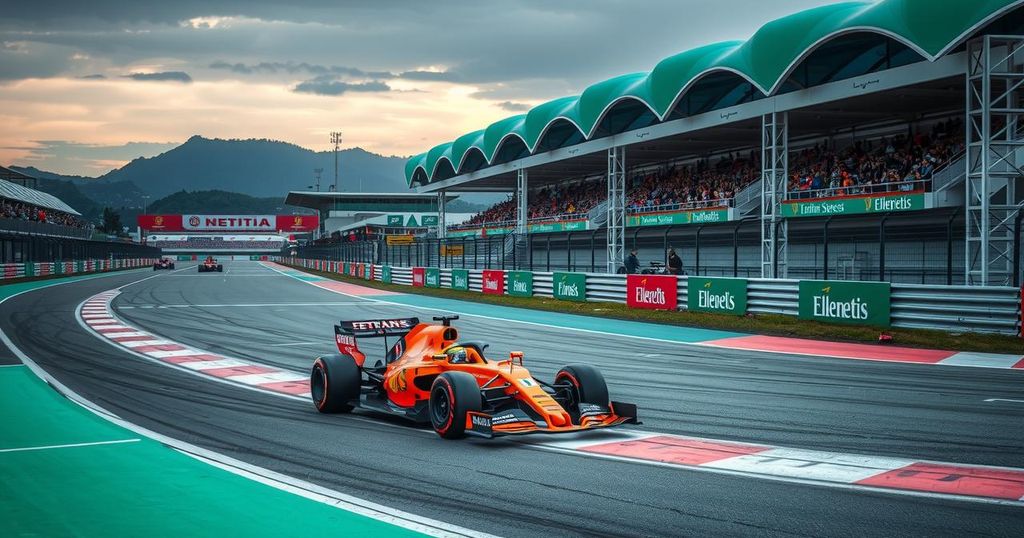The Inappropriateness of Formula 1 in Rwanda, South Africa, and Thailand

The article examines the inappropriateness of hosting Formula 1 races in Rwanda, South Africa, and Thailand, highlighting the pressing social issues these countries face, particularly poverty and inadequate infrastructure. It emphasizes the challenges in securing funding for such events and argues that the focus should shift from lavish races to community development and increased local engagement in motorsport.
The discussion surrounding the potential inclusion of Rwanda, South Africa, and Thailand as Formula 1 (F1) hosts raises significant concerns regarding the appropriateness of such events in these nations. While they express aspirations for a Grand Prix, the reality is that these countries face pressing issues, including high poverty rates and inadequate infrastructure, which demand prioritized attention over luxury sporting events. Gayton McKenzie, South Africa’s sports minister, highlights the glaring disparity between African nations and Europe, emphasizing that despite Africa’s 54 countries, it has no F1 races while Europe boasts multiple Grands Prix.
While the enthusiasm for bringing F1 back to South Africa is palpable, past attempts have shown that securing funds remains a formidable obstacle. The Kyalami circuit owners have often reported challenges in obtaining financial backing, and despite repeated efforts, the prospects for success remain uncertain. The forthcoming attempt, like its predecessors, risks becoming another exercise in futility, potentially relying on public funds to facilitate the event.
Moreover, the social implications of hosting such events in countries where many citizens live below the poverty line cannot be overlooked. While governments aim to attract wealthy tourists with high-profile racing events, the reality is that the basic necessities such as reliable utilities and food security are of far greater importance to the local population. Historical precedents suggest that the economic benefits of hosting a Grand Prix can be minimal, as evidenced by the Malaysian Grand Prix, which cost more in organization than it generated in revenue.
The FIA and F1 must reconsider their strategies in promoting motorsport events in areas such as Africa and less affluent regions of Asia. Rather than imposing costly fees on organizers, it would be prudent to waive such charges, thus encouraging wider participation. Furthermore, offering reduced ticket prices to locals could foster community engagement and investment in grassroots motorsport initiatives. By prioritizing affordability and local benefits, F1 could effectively create meaningful contributions to these communities instead of being viewed merely as a sporting spectacle for the elite.
The article critiques the appropriateness of hosting Formula 1 races in developing countries like Rwanda, South Africa, and Thailand, arguing that these nations should focus on addressing critical issues such as poverty and infrastructure rather than investing in lavish sporting events. The author discusses the historical context of F1 in South Africa, the ongoing financial challenges in securing funding for such events, and the social implications for local populations who may prioritize basic needs over luxury events. Additionally, the article introduces the idea that F1 could reshape its approach by fostering local involvement and lowering barriers to access for underprivileged communities, thus promoting motorsport in a more sustainable and ethical manner.
In conclusion, while the ambition to host Formula 1 races in Rwanda, South Africa, and Thailand reflects a desire for international recognition, the pressing social and economic challenges faced by these nations demand a reevaluation of priorities. The focus should be on addressing fundamental needs rather than organizing high-cost sporting events that may not yield the anticipated benefits. A strategic shift toward inclusivity and investment in local initiatives could transform motorsport into a vehicle for sustainable development rather than an elitist engagement.
Original Source: www.gpblog.com








